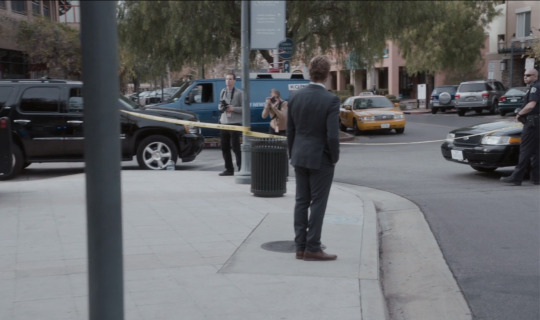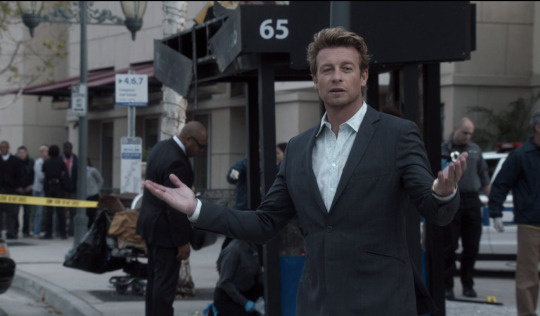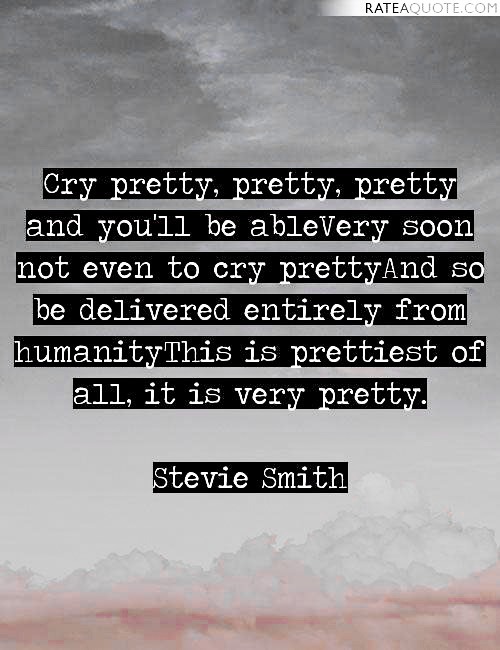#and then pike shows up and the whole thing is imploding as they speak - like he knows from the second that cab pulls up
Explore tagged Tumblr posts
Text




he's HORRIBLE
#tm#all the bullshit she put up with from him for 10 years and she's late to a crime scene ONCE and look at him ffajdslk#as if you give one single shit about punctuality patrick; but this brings up a point that i can't believe i never considered in all my bs:#does patrick jane know how to be jealous? discuss#i mean...obviously he KNOWS but....does he though#at the very least he's exceedingly out of practice#of course we know next to nothing about his and angela's relationship but between that and this he's basically had 10+ years of red john#and we know lisbon dated during that time (and we know he DID get jealous because...obviously how could he not)#but not jealous in a way he could act on - in part because ms 'intense and particular' didn't seem to have many repeat dates#(idiots) but mainly because of the red john of it all#i doubt he realized it on any conscious level (and if he did he repressed/ignored the shit out of it)#but he couldn't see anything happening with them while he had red john hanging over his head#(tangent: all his 'you deserve a good man' 'he's a good man' later on...he really doesn't see himself as a good man does he#my poor little meow meow - thinking about naomi's tags about the letter again god i wish that had happened)#and she deserves better than that; deserves better than him (SOB); so he lets the hints and the moments of jealousy pass by#but now....well now there's no more red john#he's still got a LOT to work through but that gigantic weight is off his shoulders and there's been this shift between them#(i can't come up with a better way of saying it than) they're flirting like they mean it....not that they didn't before#but now there's this sense of actual possibility behind it; this could be going somewhere; it's slow but they're taking actual (baby) steps#and then pike shows up and the whole thing is imploding as they speak - like he knows from the second that cab pulls up#how her date went and she knows that he'd know and they're just talking around it and they're so AWKWARD where they'd been#working so well together (minus an airplane ride or two)#and now he's trying REAL hard to be supportive even though he probably wants to curl up and sob#because he wants her to be happy (more than maybe anything he wants her to be happy) and he couldn't make her as happy as pike#she deserves a GOOD man and that is not him; she shouldn't have to put her life on hold for him anymore she's done that too much already#but what he doesn't get - what he can't quite comprehend (what absolutely stuns/amazes/thrills him at the end of blue bird)#is he DOES make her happy; he IS a good man (he might be the best man she knows; flaws and all); and (in this instance)#she'd be more than willing to wait for him; to be patient with him#if he'd only let her know that there's something there to wait for; something concrete they could be heading towards together
15 notes
·
View notes
Photo

‘Pretty’ by Stevie Smith
Written in 1966, ‘Pretty’ is a post-modernist poem comprising nine stanzas of blank verse, each stanza is a quatrain. I shall focus on each individual stanza, analysing them individually and also as a whole. I shall also look briefly at the poem in it’s historical context.
Smith’s use of repetition in this poem seems mild, complacent almost, with a definite simplistic quality until the climactic final two stanzas where the word ‘pretty’ implodes almost, and we discover a certain disgust and anger at the naiveté of mankind - The voice of the speaker wanders through the poem, judging all the time and restricting and thereby reducing everything to a single point - the word ‘pretty’.
Interestingly, the poem begins with a ‘fall’ then the speaker wanders through nature as the observer in a seeming state of blissful ignorance to it’s inner truth’s. Judgements as to degree’s of ‘prettiness’ or not are made continually, then the voice changes and, in the final two stanza’s, in first person - the poem speaks directly to the reader. This has a Biblical quality.
The poem is striking for the repetitive use throughout of the title word ‘pretty’. Smith has taken a word in everyday use and holds it up to magnify, disorientate and question us, the reader, causing us to reflect on the use of language. I believe that this is perhaps the single most important feature of the poem.
In the opening stanza, Smith asks why it is that the word pretty is so ‘underrated’. She then moves into an almost childlike, reflection on a leaf and how ‘pretty’ it’s fall from the tree is. This is perhaps setting the scene for the sense of ‘disconnectedness’ that the speaker has from the realities of life. A child might hold a leaf and, without the full panoply of the english language to express feelings for it, comment that it is ‘pretty’, whilst feeling all the while that it is quite something else. By repetition of the word throughout, Smith limits us, just as a child’s vocabulary limits their ability for true expression.
The speaker then reflects on a pool of water becoming ‘pretty’ after the rain. A slightly more ominous tone is adopted at the carnivorous pike that ‘stalks’.
In the second stanza, the pike continues to stalk his prey. This is a commentary on how there is, at first, escape before the prey succumbs, just as the leaf has, to the inevitability of the natural world.
The move from the second to the third stanza has a shift, as Smith moves us into it by capitalising the word ‘And’ to begin her reflection on the water rat as not being pretty. She glances back at what has happened in the water; the triumph of the Pike pursuing it’s prey and decides that this is not what ‘pretty’ is.
In the third stanza, she speaks of the Otter having no choice in habitat. Again, this is an allusion to the inevitability of the natural world, coupled with deliberate ignorance at nature’s cruelty, for the water rat cannot close it’s nostrils.
In the fourth stanza, hunting is once again predominant, as the owl moves over the water, seeking its prey. However, the tone changes as Smith speaks of the frost coming from the ground, intimating that as this is where all things come from, it is ‘pretty’, emphasising in the final line that ‘it could not be prettier’.
In the fifth stanza, She then glances back, as in stanza three and decides that ‘Yes, it could be prettier’. The poem then moves from the storybook quality of the word ‘pretty’ perceiving the animals and for the first time Smith uses a word that has many meanings, but for the purpose of this essay, I shall use it’s connotation as meaning ‘uneasy’.
The eye that has watched the animals, commenting on how ‘pretty’ they and their actions are, and to what degree, suddenly becomes self-conscious. ‘the eye abashes.’
It cannot see enough and so, it moves upwards to the sky, taking the field with it as it does so, becoming free from the constraints of the world below; it chooses to ignore and shift it’s perception.
The sixth stanza finds the focus moved from the world below to the world above, as though the poet has taken the entire scene and tilted it upwards to escape the reality of what is happening below. The final two lines comment on how easy this may seem but how extraordinary both this action is, and how extraordinary it is to be so ‘pretty.’ Here, the word’ pretty’ becomes a force of escape from the mundane. Not liking what is changing below, the gaze shifts upwards and takes it’s ‘world’ with it.
The seventh stanza speaks of the carelessness of nature, it’s indifference to Mankind. At this point in the poem, the word ‘pretty’ has assumed some power, as though a child-like voice has definite ideas about what is and is not ‘pretty’ From the animal world and the world of predator and prey, the poem moves into a comment on the difference between the animal world and that of nature which are one and the same to the outsider - the eye of the human, and how indifferent to their gaze nature really is.
There is a change in voice in the final two stanza’s, as Smith alludes to people coming into the world of nature, cloaking it with their misguided perceptions and then moving on, like a thief who having glanced at something, steals it by having done so. An exclamation mark now punctuates her sense of how easy it is to watch a scene, comment on it with mundane word’s yet be unable to grasp what goes on beneath the surface, perhaps by choice.
‘Now a person can come along like a thief - pretty!- Stealing a look, pinching the sound and feel.’ The word ‘pinching’ is interesting here, as it is this is another word for theft. The watching eye has wandered along ‘stealing’ as it moved, unable to let the realities simply be.
So, by the eighth stanza the eye deliberately rejects the truth, having looked only for prettiness in the natural world. Now the idea of using words to describe nature seems shallow and cruel, as the world of Man is compared to the easy natural world of nature and the animals and scenes that exist within their own laws.
‘Lick the icicle broken from the bank, and still say nothing at all, only cry pretty.’
Here, Smith seems to be saying that we break the ice, we steal the ice to experience something of the natural world, but have to ‘break’ it to do so, thereby ruining it. Unable to appreciate the realities of nature whilst holding its beauty, the imperfect eye of Man can only move to its inevitable death, and perhaps here Smith is making an allusion to how language evolves and thereby enables freedom and existentialism. Just as words ‘die’ and others take their place in common use, she seems to speak directly to the wanderer in the woods as she warns that soon they will not even be able to cry the word ‘pretty’. It is an angry stanza, speaking as it does in the final two lines of deliverance from humanity being ‘the prettiest thing of all. ‘
Pretty is an unusual poem. Smith keeps us emphatically within the word from one stanza to another, as she shows us why it is that this quite mundane word is important. She shows it’s versatility throughout the poem simply by the fact that she holds onto the word so utterly; it’s playfulness, by the way in which she cleverly brings us into the world of the childlike, where animals are taken as being ‘pretty’ because their true nature is not only never understood - there is an implication of the darker aspects of the word - that true knowledge of it would spoil perhaps the misconceptions that we have about reality. The message is ‘do not take things at face value’.
I have looked at the individual stanzas that comprise this poem and also at the allusions to Man’s imperfect view of the world. Stevie Smith has taken us on a journey in this poem, and has questioned the perhaps mundane eye that looks at nature at being ‘cute’ or ‘pretty’ lulling us into a sense of false security until, in the final two stanza’s, she turns angrily on the idea of ‘prettiness’, asserting that the voice that speaks pretty will cry pretty and then be annihilated; thereby unable to cry at all.
Interestingly, this poem was written at the height of the “Swinging Sixtie’s’ - A time where looking ‘pretty’ was considered more important in mainstream culture than ever before.
‘Pretty’ could be considered as a commentary on certain value changes that occurred in the 20th century, resulting in a certain superficiality.
CC Lit-Bee 2016
0 notes